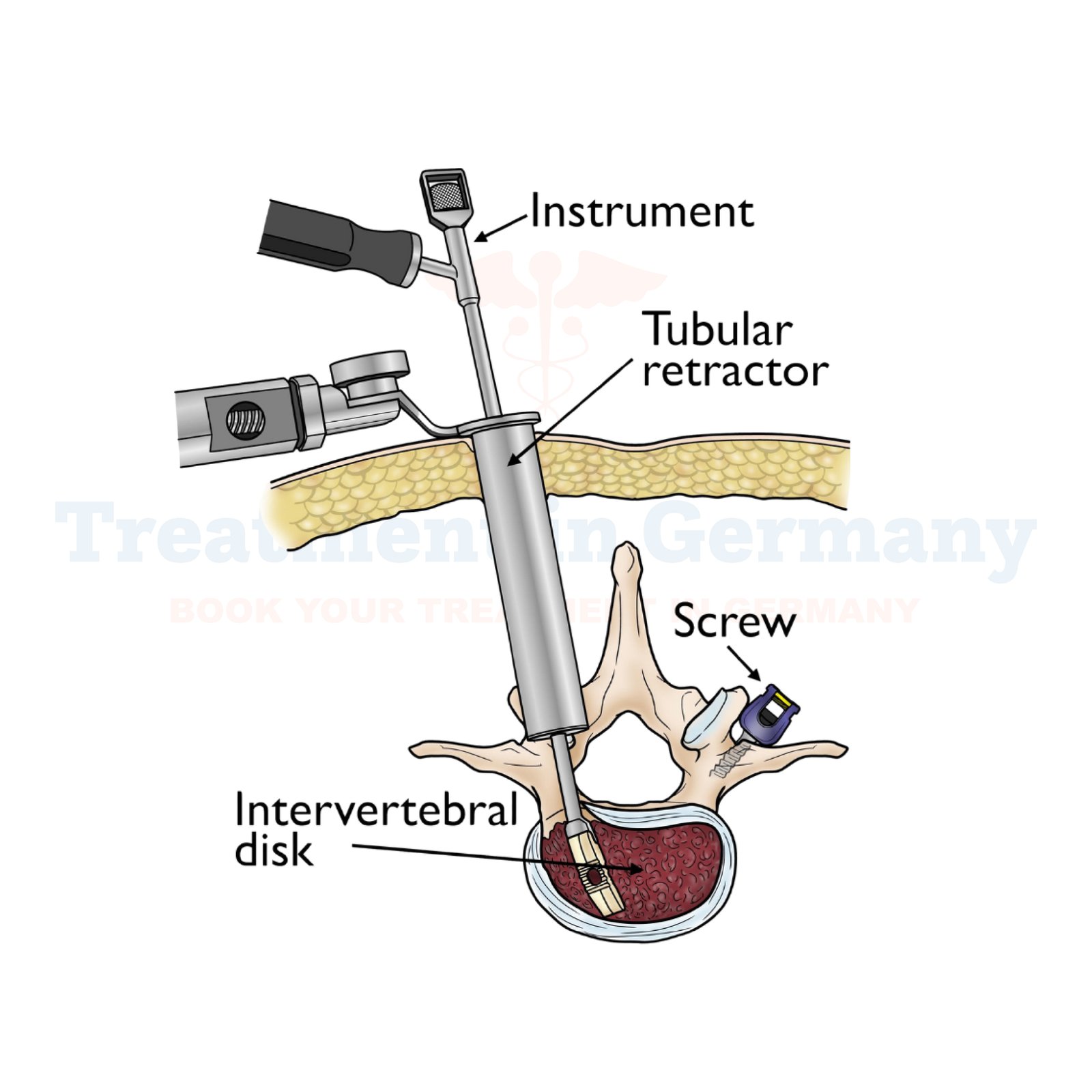MISS is a relatively new approach to spinal care that can be considered for treating various conditions. It ensures a much-reduced recovery time, less pain after the surgery, and minimal scars. The treatments in Germany are considered among the best because of German technology, skilled surgeons, and high levels of patient care.
Minimally invasive spine surgery, through exact methods that focus on problems including herniated disks, deformities of the spine, and tumors, is progressively becoming the option for patients who need an efficient procedure without interrupting their activities greatly.
Minimally invasive spine surgery involves accessing the spine with minimal trauma to the muscles and tissues using small incisions. This technique has been perfected using specific instruments, such as endoscopes and tubular retractors, to treat complex spinal conditions in Germany with utmost precision.
Traditional open surgeries necessitate larger incisions and more muscle retraction, whereas MISS emphasizes lessening the impact on the surrounding tissues, leading to faster recovery times and reduced post-surgical pain. Treatment hospitals in Germany is more limited in time and rarely associated with complications.
Why choose minimally invasive spine surgery treatment in Germany?
Germany is one of the world's treatment leaders in using modern technologies, such as robotic surgery and advanced imaging, at German medical centers to be precise and safe.
This treatment in Germany addresses degenerative or slipped disks, herniated disks, kyphosis, scoliosis, spinal tumors, and vertebral compression fractures. Care is individualized, with the patients resuming their daily lives more quickly while achieving excellent outcomes.
Conditions Treated in Spine Surgery Minimally Invasive in Germany
Degenerative or Slipped Disks
Aging or injury can degenerate or dislodge disks in the spine, thereby compressing nerves and causing pain. The treatments in Germany apply minimally invasive techniques that target the precise area of degeneration thus, symptoms are relieved while normal function is restored without causing invasive muscle retraction.
Herniated Disk
The pressure on nerves can be the most severe and painful irritation produced by a herniated disk. Minimally invasive diskectomy, available almost everywhere after treatment in Germany, removes only the portion that is affected without the mass manipulation of tissues, reducing pressure.
Kyphosis and Scoliosis
It involves the performance of spinal fusion or decompression procedures to assist in the improvement of posture and relieve pain without causing significant disruption to the surrounding muscles for patients affected by spinal deformities such as kyphosis or scoliosis.
Spinal Tumors
The abnormal cells or tumors that are present in the spine are managed by the precise and minimally invasive procedures offered by the treatment in Germany, assisting in the removal of these growths without damaging the spinal structure, hence relieving them of pressure on the nerves.
Vertebral Compression Fractures
In Germany, the process stabilizes the fractured area by not causing any form of damage, which minimizes pain and is done mainly by the minimally invasive spinal fusion method commonly practiced during the course of treatment.
During Surgery
Benefits of Minimum Invasive Spinal Surgery Treatment in Germany
Shorter Recovery Time
One of the most significant advantages of treatment in Germany is that MISS can be recovered at a much quicker speed. Since the trauma imposed on the muscles and the tissues is highly less, the patient will return to routine much quicker than with a traditional surgical procedure.
Less Pain and Scarring
With the surgery avoiding extensive manipulation of muscles, patients do not feel pain and have less scarring. There is minimal postoperative pain with treatment in Germany for a more comfortable healing process.
Reduced Risk of Infection and Bleeding
Small incisions almost eliminate the possibility of infection, blood clots, and profuse bleeding, which is one of the reasons why treatment in Germany is so attractive to patients with spinal disorders.
Relieving Pain Effectively
The quality of life is improved when used in Germany to treat spinal illnesses by eliminating symptoms like instability, nerve compression, and chronic pain.
Complications of Minimally Invasive Spine Surgery
Despite the many benefits of minimally invasive spine surgery, there are some risks involved, fewer than those of open surgeries:
Recovery After Minimally Invasive Spine Surgery in Germany
Recovery after surgery in Germany is usually much faster compared to open surgery. Painkillers are administered to ease any remaining pain, and physiotherapy is also encouraged to improve the strength and mobility of muscles.
Patients are advised to watch out for symptoms of fever or pain, which may be complications. Most patients who have undergone treatment in Germany recover quickly and effectively.
Frequently Asked Questions
Is minimally invasive spine surgery effective to treat a herniated disk?
Yes, MISS adequately treats herniated disks where only the affected area can be targeted without much damage to tissues, and one should choose treatment in Germany, which is an optimal source.
How soon can I start my normal activities after such treatment?
Recovery is likely to be faster with MISS, and treatment in Germany ensures patients return to routine in minimal time, relative to their health and treatment.
What imaging tests will be needed before surgery?
X-rays, CT, or MRI are the usual imaging done, which presents a detailed view of the spine so that a very accurate treatment can be done for German patients.
Are infections common?
Infections are rare when antibiotics have been administered before and after the surgery, a standard practice in Germany.
Does robotic assistance make spine surgery safer?
Robotic surgery adds accuracy and hence safety and outcomes that are emphasized in treatment in Germany.
👉 Contact us for further information and receive a complimentary consultation.


.webp)
 (1).webp)

.webp)
 (1).webp)


.webp)
 (1).webp)

.webp)
 (1).webp)
